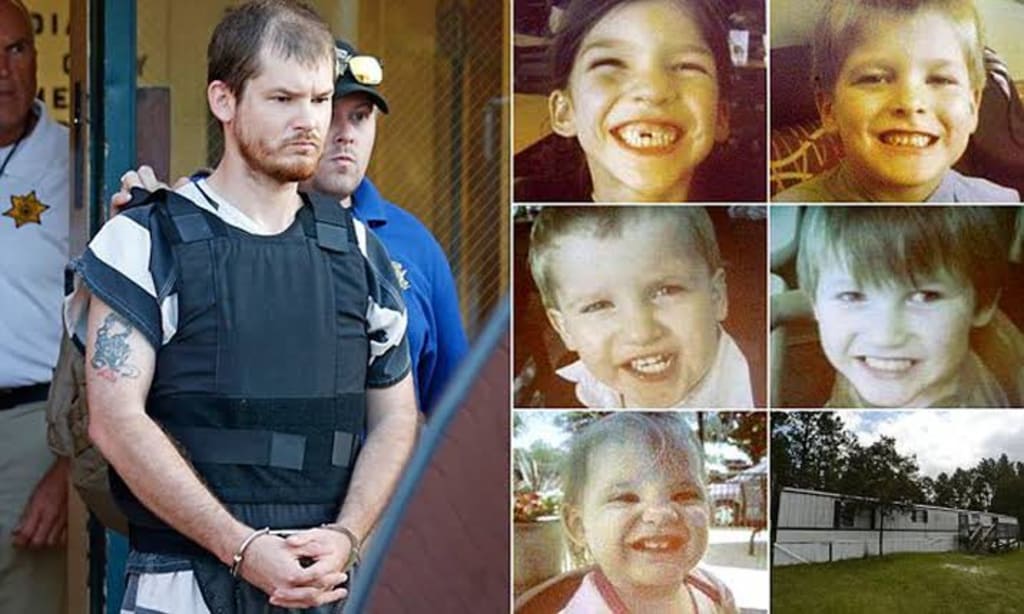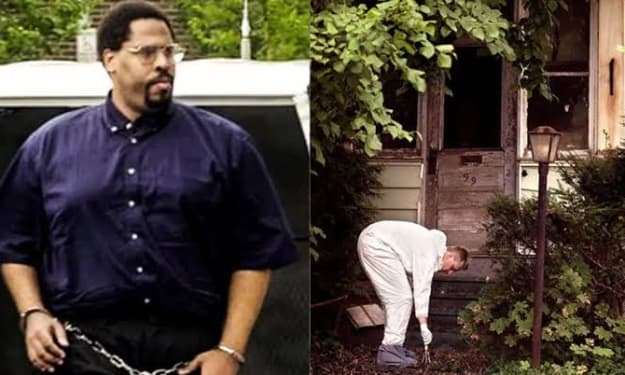Timothy Jones Jr. Strangled Is Children To Death
This was because one of his sons, broke an electric outlet

Timothy Jones Jr. believed so much in corporal punishment and on that one day, one of his sons, broke an electric outlet, and what followed was a rage that led him to strangle five of his children to death. 9 days later, their bodies were found in black trash bags in Alabama.
The story goes this:
In the quiet town of Lexington, South Carolina, a series of events unfolded that would shock the nation and leave a community reeling. At the center of this tragedy was Timothy Jones Jr., a man whose name would become synonymous with unspeakable horror. His story is one of anguish, mental health struggles, and the devastating consequences that can result when individuals slip through the cracks of a broken system.
Timothy Jones Jr. was born on May 19, 1982, in Alabama. From the outside, his upbringing seemed relatively normal. However, behind closed doors, there were signs of trouble brewing. Reports indicate that Timothy struggled with mental health issues from a young age, exhibiting symptoms of bipolar disorder and schizophrenia. Despite his parents' efforts to seek help for their son, the resources available were limited, and Timothy's condition worsened over time.
As Timothy entered adulthood, his mental health deteriorated further. He struggled to hold down a job and maintain stable relationships. His behavior became increasingly erratic, and he isolated himself from friends and family. Despite multiple attempts at intervention, including hospitalizations and therapy sessions, Timothy's condition continued to spiral out of control.
The breaking point came in August 2014 when Timothy Jones Jr. committed an act so heinous that it would forever change the lives of those involved. In a fit of rage, Timothy murdered his five young children, ages 1 to 8, in their home. He then drove their bodies across several states before dumping them in rural Alabama. The news sent shockwaves through the community and left many questioning how such a tragedy could have occurred.
In the aftermath of the murders, details of Timothy Jones Jr.'s troubled past began to emerge. Reports revealed a history of substance abuse, financial difficulties, and strained relationships with his ex-wife, who was the mother of the children. Mental health professionals who had interacted with Timothy expressed frustration at the lack of adequate resources and support available to individuals like him.
The case also shed light on the shortcomings of the mental health care system in the United States. Despite numerous red flags and warning signs, Timothy Jones Jr. slipped through the cracks, failing to receive the help and support he so desperately needed. Many argued that if proper interventions had been in place, perhaps this tragedy could have been prevented.
In September 2019, Timothy Jones Jr. was found guilty of five counts of murder and sentenced to death. The trial brought closure to some, but the scars left by his actions will never fully heal. The case serves as a sobering reminder of the devastating impact that untreated mental illness can have on individuals, families, and communities.
In the years since the tragedy, efforts have been made to improve mental health care services and support networks. Advocates have called for increased funding, better access to treatment, and destigmatization of mental illness. While progress has been made, there is still much work to be done to ensure that individuals like Timothy Jones Jr. receive the help they need before it's too late.
As we reflect on the story of Timothy Jones Jr., we are reminded of the importance of compassion, understanding, and empathy. Mental illness is not a choice, but a complex and often debilitating condition that requires proper care and support. By coming together as a society, we can work towards a future where tragedies like this are no longer a reality, and all individuals have the opportunity to lead healthy and fulfilling lives.






Comments (1)
At least, it can be helped now. GREAT writing. Reminds of a time, way back when.